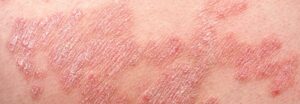October is Eczema Awareness Month. For individuals living with eczema, you will be all too familiar with the trials of handling this skin complaint. It’s our mission throughout October and beyond to educate, support and empower you by delivering invaluable insights on its origin, available therapies and practical coping strategies. In this all-encompassing guide we will delve into various aspects of eczema – from distinguishing the different forms to viable treatment alternatives. Our objective is to arm you with knowledge and resources that facilitate a better quality of life, regardless if you’re newly diagnosed or have been battling eczema for years.
What is Eczema Exactly?
Eczema, alternatively named dermatitis, encompasses a range of conditions that inflame the skin, leading to itchiness and sometimes cracked or rough patches. It’s a prevalent skin issue that anyone can experience, regardless of age or sex. Eczema is more than a simple rash; it can persist and in severe cases, be incapacitating. For many, this is a chronic condition that intermittently flares up and then settles down. To manage this condition well, one must first understand it thoroughly.
Eczema manifests differently amongst individuals and can vary based on the type and severity. Generally, it emerges as red or brownish patches that may be thick, crusty or secrete liquid. Though non-contagious, its visibility can cause considerable emotional distress which can influence self-confidence and life quality.
Interestingly, ‘eczema’ is a broad term that includes multiple types of dermatitis, each with distinct characteristics. Knowing your type is a significant step towards effective management. Regardless if you’re dealing with seborrheic dermatitis or contact dermatitis, each variant requires a personalised treatment and prevention approach.
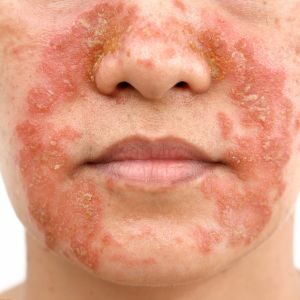

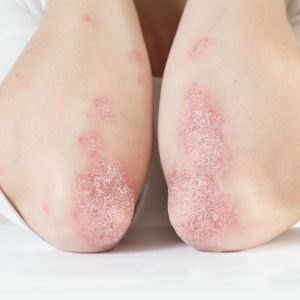
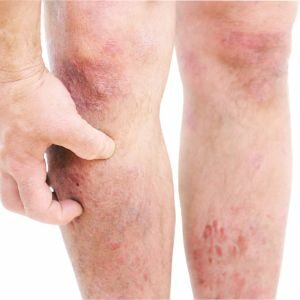
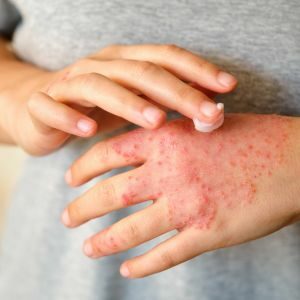
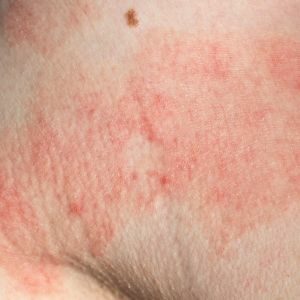
What Causes Eczema?
Types of Eczema and Dermatitis
Atopic Dermatitis
Seborrheic Dermatitis
Targets oily areas like the scalp and face, causing flaky and yellowish scales (often referred to as dandruff). Factors such as hormones or yeast on the skin can contribute to symptoms.
Contact Dermatitis
Dyshidrotic Eczema
Identifying Symptoms
Eczema symptoms vary greatly not only between individuals but also in severity. Typical symptoms encompass dry, sensitive skin, red or inflamed patches and severe itching. Some people may experience oozing or crusty lesions, while others might develop thick, leathery skin due to excessive scratching.
Early detection of these symptoms can result in better management. Keep in mind that symptoms can evolve over time, so it’s essential to observe how your skin responds to different factors. This information will be incredibly useful for your dermatologist.
If eczema is suspected, it’s crucial to consult a healthcare professional for an accurate diagnosis. They can differentiate between different types of dermatitis and suggest suitable treatments. Early diagnosis can prevent more severe complications and enhance life quality.
Eczema Treatment
Eczema treatment is centered on relieving symptoms and preventing future outbreaks. While there’s no known cure, various techniques can help manage the condition. Topical treatments like corticosteroids reduce inflammation and moisturisers maintain the skin’s barrier functions, are usually the first line of defense.
In more extreme cases, systemic treatments such as oral medications could be an option. These therapies aim to manage the underlying inflammatory response. Phototherapy, which involves exposure to ultraviolet light, may also benefit some individuals.
Preventative Measures and Long-Term Care
Is Eczema Contagious?
Eczema Treatments at Stratum Dermatology Clinics
Eczema Awareness Month is an opportunity to deepen your understanding of this condition and express support for those affected.
Familiarising yourself with the causes, types and treatment alternatives can help you take control of your skin health. Remember, professional guidance can make a significant difference.
Start your journey to managing eczema – book a consultation today for tailored advice and treatment options.

